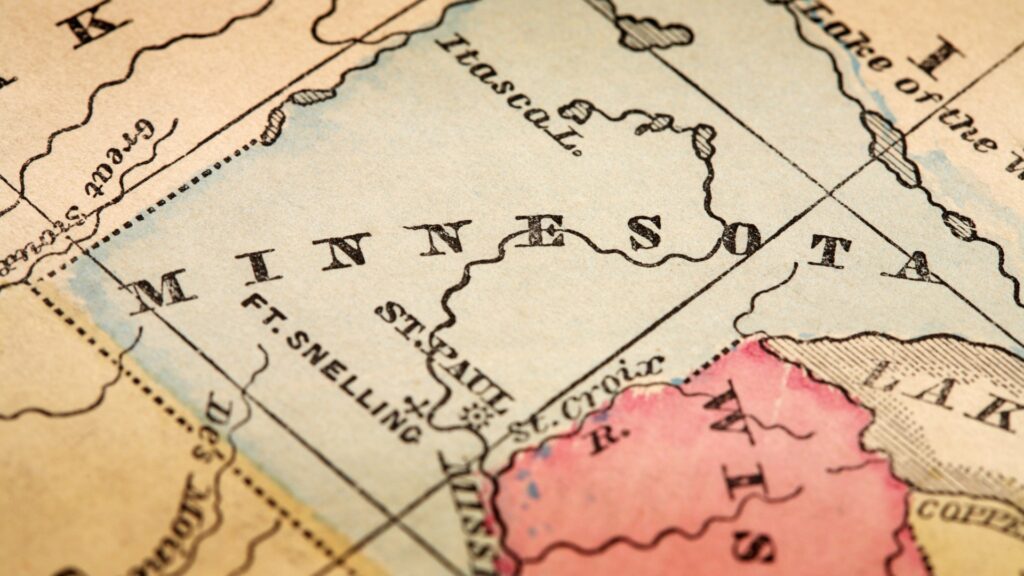With the introduction of the twin bills SF 73 and HF 100 on January 17, 2023, introduced by Senator Lindsey Port (DFL) and Representative Zack Stephenson, the Minnesota state legislature made a key step toward the legalization of cannabis for adults 21 and older.
The majority of the Minnesota Senate is now willing to consider legalizing marijuana for the first time. With a focus on helping social equality applicants, the 250-page law includes provisions for home cultivation, equity promotion, funding for substance misuse education and treatment, and cannabis start-up aid.
If successful, Minnesota will finally join the ranks of several US states with legal weed.
The Path to Weed Legalization in Minnesota
It has taken a long time for marijuana to become legal in Minnesota as earlier initiatives were thwarted by the Republican Senate majority. A bill that allowed and regulated hemp-derived edibles and drinks with up to 5 grams of THC per serving and 50 grams per package was nevertheless passed by the state in 2022. However, Minnesota lawmakers placed further restrictions to their new bill, in contrast to certain other states that have long since legalized CBD products with a low level of THC.
CBD edibles must now be in childproof, tamper-evident packaging, and include a label stating that they should be kept out of the reach of children. Furthermore, they cannot be made to look like kid-targeted products or packed to resemble branded food items. To guarantee that they are safe for ingestion, all consumables must also be tested for potentially dangerous elements like mold, heavy metals, pesticides, fertilizers, and solvents. Essentially, Minnesota requires all CBD products to be treated in a similar manner.
The current legalization bills aim to add additional licensing and regulatory safeguards for lower-THC products.
What’s Included in the Revised Marijuana Legalization Bill
Adults 21 and older would be able to possess up to five pounds of marijuana in private and offer up to two ounces of marijuana to other adults for free, in addition to being allowed to produce up to eight mature plants and purchase up to two ounces of marijuana. Additionally, by giving equity candidates a better score, the bill encourages social equity, including diversity in licensing.
Minnesota already has a decades-old decriminalization law in place, making possession of up to 42.5 grams of cannabis punishable by a fine rather than jail time. In 2014, the state also established a medical cannabis program, which has since expanded to include several qualifying conditions such as PTSD, chronic pain, and sickle cell disease.
The Benefits of Weed Legalization in Minnesota
The state of Minnesota would benefit greatly by legalizing marijuana, including more jobs, more tax money, and fewer unwarranted stops, searches, and arrests that unfairly target Black people.
According to a 2020 ACLU report, Minnesota has the eighth-worst racial disparities in the nation, with Black individuals 5.4 times as likely to be arrested for cannabis possession as white individuals, despite nearly identical usage rates. Legalization would align with the opinions of Minnesota voters who support cannabis legalization for adult use.
The House Labor and Industry Finance and Policy Committee is the next destination for the marijuana legalization bill. A first hearing on companion legislation sponsored by Senator Port is also planned for the Senate. The future appears promising for those pushing to remove marijuana prohibition in Minnesota as support for legalization grows there.
Take Action: Support Legalization Efforts in Minnesota
Primary day is August 9, 2023, thus this year’s election season offers Minnesotans a chance to support legalization initiatives. Minnesotans can sign the petition showing support for adult-use cannabis. Ask your candidates for the state House and Senate if they favor the legalization of cannabis for adult use send a letter to your state senator and member of the House now to express your support. Help Minnesota adopt a more rational cannabis policy, which will benefit the state’s economy and criminal justice system.






